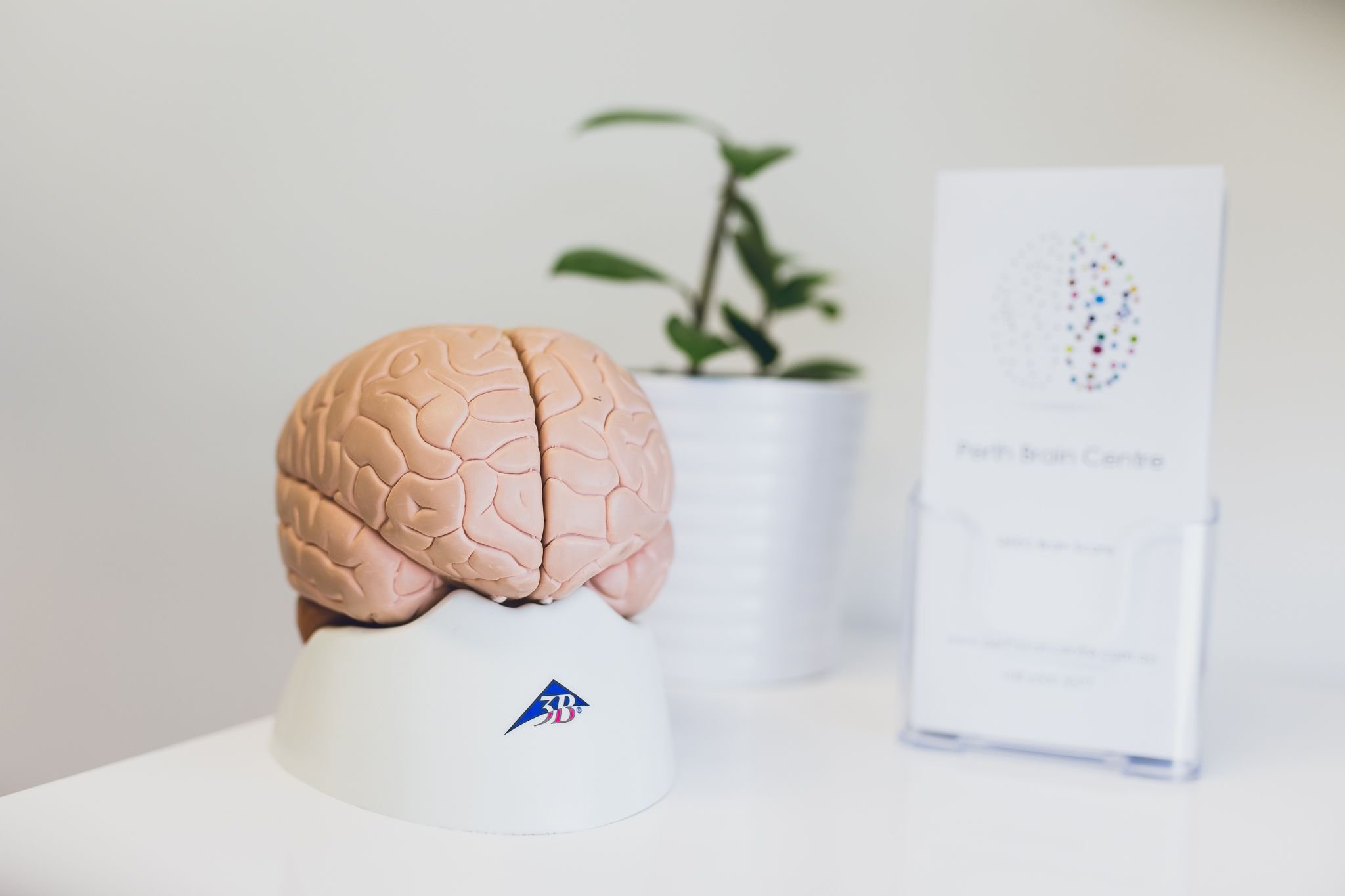
Neuroknowledge

Neuroplasticity Chronic Pain Treatment Workshop By The Perth Brain Centre
November marks Perinatal Anxiety & Depression Australia (PANDA) Week. PANDA, now in it’s 18th year, is all about supporting the mental and emotional wellbeing of expecting and new parents.

Perinatal Anxiety and Depression Australia (PANDA) Week - November 2018
November marks Perinatal Anxiety & Depression Australia (PANDA) Week. PANDA, now in it’s 18th year, is all about supporting the mental and emotional wellbeing of expecting and new parents.

Trouble getting to sleep at night? - Hush little human, don’t say a word…
Screens can really upset our sleep, and disrupt other hormones including oestrogen, and there is absolutely no place for them in the bedroom. The next time your teens are pleading with you, desperately searching for the reason why you are turning off devices and locking them away in cupboards, get them to watch this 4 minute clip from SciShow

Small Actions Big Difference, Dementia Australia, 2018.
Dementia Awareness Month is Dementia Australia’s national awareness-raising campaign held every year throughout September.
Its aim is to encourage all Australians to become more aware of dementia, to get a better understanding of what it is like to live with dementia and how we can support people living with dementia.
This year’s theme is Small actions Big difference.
There are many small actions people can take to create a big difference for people impacted by dementia, their families and carers.
There are many ways to get involved in Dementia Awareness Month.

Anxiety - 25% of Australians have it, so it’s worth talking about!
Earlier this month was OCD (Obsessive Compulsive Disorder) and Anxiety Awareness week in Victoria. However, with nearly 240,000 people in Western Australia experiencing anxiety this year it seems really important to talk about anxiety disorders here as well.
The best way to learn about someone is to take the time to listen to their story, the best way to understand someone is to step into their shoes. It is important for all of us to feel understood, this way we break down barriers and we find solutions. August brings a time to build our awareness of anxiety disorders, so, first, we went looking for real people’s descriptions of what anxiety feels like:
In one article from The Independent a woman explained the constant feeling of being anxious ‘as if she tripped and the moment where you don't know if you are going to catch yourself or not is how she felt all day long', and someone else describes ‘[It’s like] when you tap your pocket to get your wallet, and it is not there (and like the woman above said), it’s like that all the time.’

‘Chronic Pain – Is it all in your head?’
For some, particularly those living right now with a chronic pain experience, this may be a painful question to read…it may be one that has been posed by a health professional sitting across a desk in front of you…it may have felt, and still feel, unfathomable that they could have said that to you…they may not have known the truth in their statement, but we are going to explain it to you now. We feel pretty confident you will feel better informed, and hopefully, even a bit better after you have thought about it…

Latest Neuro-Rehabilitation News from Harvard Medical School
I have just returned from The 2018 International Neurorehabilitation Conference in Boston run by Harvard Medical School. I was one of hundreds of delegates from all over the world attending to get the latest updates on cutting-edge treatments to help people with brain problems. We had experts presenting on a large range of topics ranging from neuroplasticity to proven and state-of-the-art brain therapies.


Targeting seizure activity in Autism may help improve language skills and intellectual disability.
Most children with Autism are also facing additional challenges like ADHD and Anxiety, and one third have Epilepsy. It appears that this is caused by a gene mutation which is also associated with language delay and intellectual disability.

New 2 Minute Test For Autism
New research, published in The Journal of Developmental and Behavioural Pediatrics last month, has shown that a simple 2-minute questionnaire can help detect autism in toddlers. Research indicates that about 1% of children have Autism in Australia. Like all children, every child with Autism is unique, however there are core symptoms characterised by differences in behaviour, social interaction, communication and sensory processing. Every person is affected differently, and whilst some people with Autism also have an intellectual impairment or disability, some people have average or above-average intelligence. People with Autism often experience additional challenges and problems like ADHD, Anxiety and Depression are particularly common.

Is Brain-Training the new stimulant medication?
In the past, treatment for ADHD has been limited to stimulant. However prior research has shown that the effects of medications tend to decrease after 2 years of use and may also cause side-effects such as anxiety, nausea and difficulties with sleep.

Mindful May
May is the month to be mad about mindfulness…and what a great initiative to motivate people to start daily mindfulness practice and also make a significant donation to improve clean water supply to those in need. Mindful in May is a wonderful win-win project founded by Dr Elise Bialylew – medical doctor, psychiatrist, life coach and writer.




